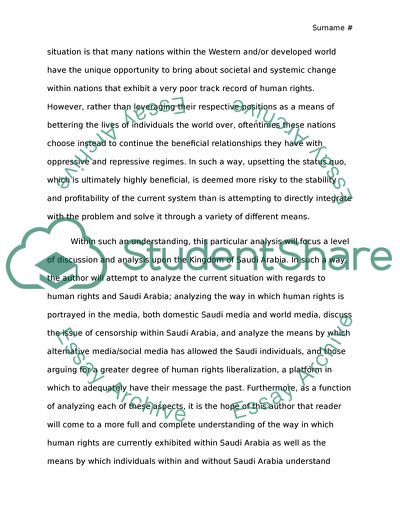Cite this document
(Human Rights in Saudi Arabia Case Study Example | Topics and Well Written Essays - 2500 words - 1, n.d.)
Human Rights in Saudi Arabia Case Study Example | Topics and Well Written Essays - 2500 words - 1. https://studentshare.org/journalism-communication/1801773-human-rights-in-saudi-arabia-and-its-representation-in-the-media
Human Rights in Saudi Arabia Case Study Example | Topics and Well Written Essays - 2500 words - 1. https://studentshare.org/journalism-communication/1801773-human-rights-in-saudi-arabia-and-its-representation-in-the-media
(Human Rights in Saudi Arabia Case Study Example | Topics and Well Written Essays - 2500 Words - 1)
Human Rights in Saudi Arabia Case Study Example | Topics and Well Written Essays - 2500 Words - 1. https://studentshare.org/journalism-communication/1801773-human-rights-in-saudi-arabia-and-its-representation-in-the-media.
Human Rights in Saudi Arabia Case Study Example | Topics and Well Written Essays - 2500 Words - 1. https://studentshare.org/journalism-communication/1801773-human-rights-in-saudi-arabia-and-its-representation-in-the-media.
“Human Rights in Saudi Arabia Case Study Example | Topics and Well Written Essays - 2500 Words - 1”. https://studentshare.org/journalism-communication/1801773-human-rights-in-saudi-arabia-and-its-representation-in-the-media.


